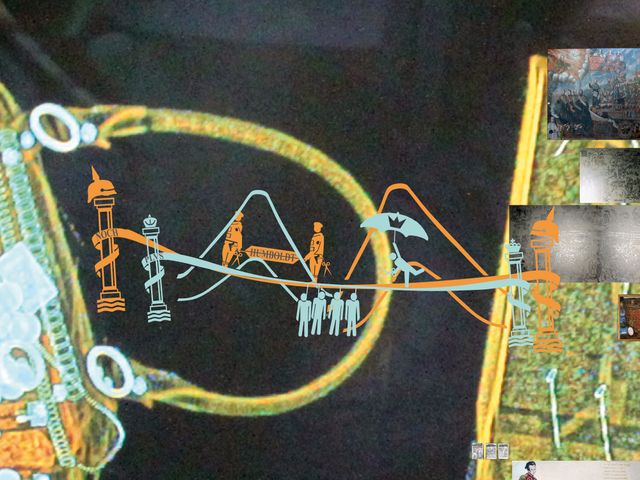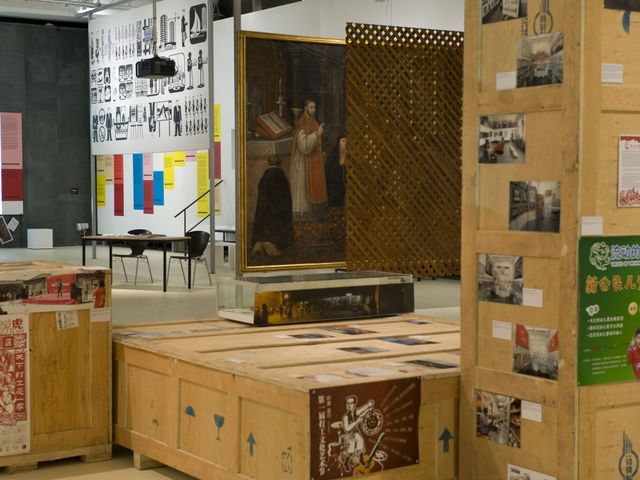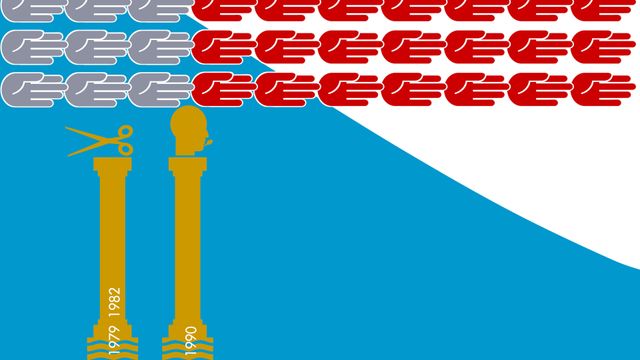Oct 7, 2010–Jan 2, 2011
The Potosí Principle
Not only commodities, but also images—material and ideological—were transported from colonial Latin America to Europe. On the 200th Anniversary of the independence movements in Latin America, the Haus der Kulturen der Welt, together with partners in Spain and Bolivia, will focus on a specific aspect of colonial history: the relationship between trade and image transfer, exchange of economic and thought structures between Latin America and Europe and beyond.
The famous silver city Potosí, provides the framework for an exhibition and conference which critically examines the relationship between the 16th and 18th century mining industry in the Latin American colonies lies at the core of Europe's economy.
The project, curated by Andreas Siekmann, Alice Creischer (Berlin) and Max Jorge Hinderer (Santa Cruz/Berlin), investigate the economic, image and political contexts, which from the 16th century to the present day have shaped the world order and with it our perception of the world. Based on the history of Andean colonial painting, and also contemporary works on the subject, the exhibition illustrates the systematic exploitation of the Viceroyalty of Peru which encompassed much of the South American continent. The project title refers to the legendary city in the Bolivian highlands which for centuries has been synonymous with wealth. Even today vale un Potosí—that's worth a fortune—is a commonly used expression in Spanish.
The exhibition, which includes one of a kind historical exhibits and new works by a wide variety of artists, and which will be shown first at the Museo Nacional Centro de Arte Reina Sofía in Madrid and then in the Museo Nacional de Arte in La Paz, deals with the overlap of hegemony and image production between Latin America and Europe. The Potosí Principle is virtually repeated in each place and time in the world, the best example of it being the biennial and museum policies of the world’s financial capitals. Central to this classification is the system of global correspondences: Beijing, Moscow, London.
The Potosí Principle is dealt with differently in each of the three exhibition spaces: Spain, Germany and Bolivia. Berlin focuses on the topic "Cultural Nation:" the curators in the exhibition and international conference will examine the self- image and self-legitimation of regimes through the use of culture – especially in light of the Humboldt Forum’s new home located in the much disputed replica of the Stadtschloss.
Cooperation partners/other exhibition venues: Museo Nacional Centro de Arte Reina Sofía in Madrid and the Museo Nacional de Etnografía y Folklore in La Paz, Bolivia


